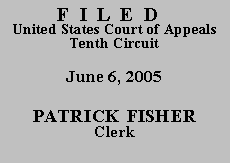

| CHARLIE GRIFFIN, |
|
| v. | |
| JOE ORTIZ, Director of D.O.C.; JAMES ABBOTT, Warden of CTCF; JOHN SUTHERS(*), Attorney General of the State of Colorado, |
A magistrate judge granted the motion to proceed IFP but ordered Applicant to file an amended application clarifying (1) the specific claims asserted and the factual basis for the claims and (2) the specific steps taken to exhaust the claims in state court. Responding to the order's requirement that he explain how his claims had been exhausted in state court, Applicant's new application, this time under 28 U.S.C. § 2241, stated: "I have been to all the state court the district court and the court of appeal, and the state supreme court in Colorado." R. Doc. 9 at 3.
The district court dismissed the action for failure to exhaust state remedies. Applicant filed a notice of appeal. The district court denied his motion to proceed IFP on appeal and sua sponte denied a certificate of appealability (COA), see 28 U.S.C. § 2253(c)(1)(B), for the reasons stated in its dismissal order.
Applicant then applied to this court for a COA and filed a motion to proceed IFP. He once again alleges both that his sentence was illegal and that he is being unlawfully confined past the expiration of his sentence. Regarding exhaustion of state remedies, Applicant writes, "I do not know if I exhaust all of my state remedies, since the court has totally disregard my habeas-corpus and did not give me attorney like I ask them in my habeas-corpus I did the best that I could do." Application for COA at 4.
"A certificate of appealability may issue . . . only if the applicant has made a substantial showing of the denial of a constitutional right." 28 U.S.C. § 2253(c)(2). "When the district court denies a habeas petition on procedural grounds without reaching the prisoner's underlying constitutional claim, a COA should issue when the prisoner shows, at least, that jurists of reason would find it debatable whether the petition states a valid claim of the denial of a constitutional right and that jurists of reason would find it debatable whether the district court was correct in its procedural ruling." Slack v. McDaniel, 529 U.S. 473, 484 (2000). "Where a plain procedural bar is present and the district court is correct to invoke it to dispose of the case, a reasonable jurist could not conclude either that the district court erred in dismissing the petition or that the petitioner should be allowed to proceed further." Id. We recognize that in determining whether to issue a COA, a "full consideration of the factual or legal bases adduced in support of the claims" is not required. Miller-El v. Cockrell, 537 U.S. 322, 336 (2003). Instead, the decision must be based on "an overview of the claims in the habeas petition and a general assessment of their merits." Id.
Because reasonable jurists would not disagree with the district court's disposition, we deny the application and dismiss the appeal. The Antiterrorism and Effective Death Penalty Act of 1996 (AEDPA) requires an applicant to exhaust his claims in state court before raising them in federal habeas proceedings. 28 U.S.C. § 2254(b)(1)(A). To satisfy this requirement, an applicant "must give the state courts one full opportunity to resolve any constitutional issues by invoking one complete round of the State's established appellate review process." O'Sullivan v. Boerckel, 526 U.S. 838, 845 (1999). The applicant bears the burden of establishing proper exhaustion. Olson v. McKune, 9 F.3d 95 (10th Cir. 1993).
Applicant has not carried his burden. He does not even attempt to show exhaustion in his COA application to this court; rather, he alleges that he could not be expected to do so because he was denied counsel for his habeas proceedings in district court. But Applicant is not automatically entitled to counsel in habeas proceedings, see Engberg v. Wyoming, 265 F.3d 1109, 1122 (10th Cir. 2001), and he did not ask the district court to appoint counsel. The only document in the record supporting his cursory statements that he presented his claims in state court is a single-page order from the Colorado Supreme Court affirming the district court. It says nothing regarding the claims presented and ruled on by the state courts.
No reasonable jurist would disagree with the district court's holding that Applicant failed to establish exhaustion of his claims in state court. We therefore DENY the application for a COA and DISMISS the appeal. Applicant's motion to proceed IFP is DENIED. See 28 U.S.C. § 1915(a)(3).
ENTERED FOR THE COURT
Harris L Hartz
Circuit Judge
*. Pursuant to Fed. R. App. P. Rule 43(c)(2), John Suthers is substituted for Ken Salazar as Colorado Attorney General.